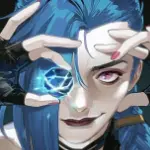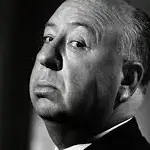Since its release, "V for Vendetta" has been controversial, thanks to its dystopian themes and a series of non-mainstream societal elements. This article asserts that the film injects political metaphor into its futuristic setting, examining totalitarian rule and deliberately crafting a rebellious character who seeks to pass judgment through violent revolution, thereby expressing a solid appeal for free will.

Themes of freedom versus tyranny, totalitarianism versus anarchism, utopia versus dystopia, and other politically sensitive topics, coupled with non-mainstream elements like homosexuality and pedophilia, make "V for Vendetta" an epic film that was both highly anticipated and hotly debated from 2005 to 2006.
The story unfolds in a virtual future in Britain, where a monotonous society devoid of soul exists under totalitarian rule. The government, in the name of order and stability, kidnaps the liberties of the people, leading to a world where truth is obscured and lies reign. The film echoes George Orwell's depiction of thought suppression and collective silence under totalitarian rule in "1984." However, in contrast to Winston Smith's powerless endurance in Orwell's novel, the film's protagonist, V, takes on the role of an individual force against societal violence, becoming both a judge of the dictatorship's power and a solitary hero defending free will.
Directed by the Wachowskis, the visionaries behind "The Matrix," the film combines grand visual effects with political metaphor. It scrutinizes totalitarian rule, deliberately shapes a rebellious character who seeks to pass judgment through violent revolution, and articulates an emotional plea for free will.
1. The "Gunpowder Plot" 400 Years Later
In 1605, "gunpowder" became a keyword globally. In England, a group of fanatics dreaming of restoring Catholic rule plotted to blow up Parliament and the monarchy. On November 5, the day of the parliamentary ceremony, Guy Fawkes smuggled 36 barrels of gunpowder into the basement. The conspiracy miraculously unraveled in the early hours of the 5th, leading to the execution of Guy Fawkes and others. England narrowly escaped the most significant terrorist plot in human political history. The event deserves commemoration, as the amount of gunpowder could have destroyed Parliament twenty times over. Thus, November 5 became the traditional Guy Fawkes Night in Britain.

The foiled plot had a significant negative impact on English Catholics, halting their liberation entirely. They had to wait for almost 200 years to obtain nearly equal rights.
Four hundred years ago, this group of religious zealots offended the principle of monarchy, becoming sacrifices in political operations. This action of spiritual rebellion against political authority, born out of religious fanaticism, was crushed with Guy Fawkes and others being publicly executed. However, while people may fail, be arrested, killed, or forgotten, ideas do not bleed, feel pain, and possess the power to traverse time and space. Thus, 400 years later, it reappears in the guise of V, the Avenger, with the power to change the world. Intending to awaken the "silent majority," he creates terror through assassination, making the once totalitarianism experience the might of ideas. Ultimately, under the banner of defending freedom, he gathers masses, awakening the free will within them, as a flood breaking through the last defense line of totalitarian rule, creating a grand scene of an entire populace united under V.
II. "Lying Prison" and the Totalitarian Network
In the film, the British people live in extreme unfreedom. They invest hope in a powerful totalitarian political party, which, after relinquishing their rights to the maximum, confines them within a cage. Artists use lies to expose facts; politicians use lies to cover facts, reconstruct social order, and maintain their conservative totalitarian rule; the British government loudly proclaims "unity through faith," swiftly constructing the "lying prison" and building its totalitarian network.

They set the national propaganda machine, BTN (British Television Network), in motion—reversing black and white, fabricating facts, manipulating public opinion, and replacing the progression of actual events with an uninterrupted game of lies. To ensure complete obedience, the government spreads fear and terror, leading the nation into civil war, water shortages, crime, and infectious diseases as if it were on the verge of destruction. Notably, the BTN television tower in the film is placed in the city's center and occupies the highest point, like a faceless gaze, perceiving and transmitting everything. It makes lies omnipresent, rendering all hidden things exposed. Here, everyone is imprisoned in this "prison of lies."

Meanwhile, relying on faith, a rigorous censorship and surveillance system is established, forming a sustained and stable operating mechanism for the state. Everything from the past is distorted, classics are banned, and statues, paintings, and even street buildings are renamed. Colorful photographs are replaced by monotonous portraits of Chancellor Sutler, an omnipotent figure who seemingly observes and commands everything, ready to issue orders, perceive, and judge all faults. The Statue of Liberty is replaced by guards wielding knives, symbolizing ruler worship. Secret police roam freely, heretics and homosexuals are labeled "enemies of the state" and vanish overnight. In the film, the parents of the female protagonist, Evey, are killed for participating in the Leeds riot, and she is forcibly subjected to a refined form of indoctrination, a "monastery"-style comprehensive ideological transformation, transplanting the ruler's will into her brain. This ultimately establishes an all-encompassing, indestructible, unrestricted subordinate relationship.
III. V, the Avenger of Freedom
With a strange mask, extraordinary skills, profound knowledge, humorous speech, a soul filled with hatred, and a heart scarred with wounds, V is the film's male protagonist. Upon his debut, he stylishly eliminates two suspicious secret police officers, saving Evey. Evey is a law-abiding citizen with latent revolutionary genes. Through his thoughts and actions, V gradually achieves redemption for Evey, overcoming her internal fears and facing death. Ultimately, she stands on the same front as him, fighting for the hopes of the people and the country.

V was one of the human experiments of the former totalitarian government, but he fortunately escaped death, becoming the only survivor among 48 subjects. The cruel torture did not corrode his wisdom and thoughts but rather honed his superhuman physique and will. In the end, he sets fire to the detention center and escapes, paying a heavy price for severe burns. Before leaving, he swears to retaliate against the dictatorship.
He infiltrates BTN, reveals the government's wrongdoings and atrocities through a televised speech, and calls on all British people to stand up with him in a demonstration against the dictatorship in front of the Houses of Parliament a year later. Through a series of violent assassinations, he mercilessly punishes social scum who conduct bio-experiments and harm life for their greed.
IV. Triumph of Free Will
As the clock strikes on November 5, Evey pulls the lever, and the train filled with explosives hurtles towards the Houses of Parliament, carrying V's body. Following that, the Houses of Parliament transform into a dazzling fireworks display of Peter Tchaikovsky's "1812 Overture," people remove their masks, feeling reborn. This is the victory of the people, the triumph of free will, a victory witnessed by the masses—from coldly observing an idea being strangled 400 years ago to the fireworks of free will soaring 400 years later. Undoubtedly, this is the revival of the ideal of freedom and the return of civil rights.

In fact, from the moment V appears, every failure of the authoritarian party is a victory for free will. However, it evolves from the triumph of individual heroism against totalitarianism to the victory of the masses against totalitarianism. As a martyr, V terminates an old era and welcomes a new one with his death. As he said, tomorrow will be a different world, and others must shape it.
So, who is V? He is the Count of Monte Cristo; he is you and me, and he is everyone.











































Share your thoughts!
Be the first to start the conversation.